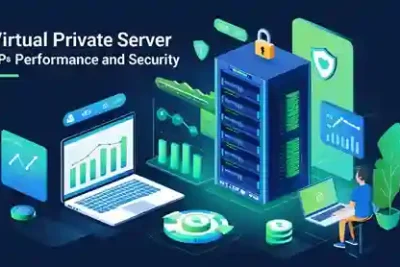preferred solution for businesses and developers seeking flexibility, control, and enhanced performance. However, simply having a VPS is not enough; optimising its performance and security is crucial for ensuring a seamless experience for your users and safeguarding your data. In this article, we will explore seven essential tips that will help you improve both the performance and security of your VPS, ultimately leading to a more robust and reliable server environment.
VPS TIPS
1. Choose the Right Operating System
The foundation of your VPS’s performance lies in its operating system (OS). Selecting the appropriate OS for your specific needs can significantly impact the overall efficiency and functionality of your server. Popular choices such as Ubuntu, CentOS, and Debian each come with their own set of features and performance capabilities. For instance, Ubuntu is known for its user-friendly interface and extensive community support, making it ideal for beginners. In contrast, CentOS is highly regarded for its stability and security, making it a preferred choice for enterprise environments. Take the time to evaluate your specific requirements and choose an OS that aligns with your goals, as this can lay the groundwork for optimised performance.
2. Regularly Update Your Software
Keeping your VPS updated is paramount in maintaining both performance and security. Software updates often include patches that address vulnerabilities, bug fixes, and performance enhancements. By failing to apply these updates, you leave your server exposed to security risks and potential performance issues. Establish a routine schedule for updates, whether it be weekly or monthly, and consider enabling automatic updates where possible. This proactive approach ensures that you are always operating with the latest security measures and optimisations, thereby reducing the likelihood of encountering issues down the line.
VPS
3. Implement a Robust Firewall
A robust firewall acts as the first line of defence against unauthorised access and cyber threats. Configuring a firewall on your VPS allows you to control the flow of incoming and outgoing traffic, thus safeguarding your server from potential attacks. Tools such as UFW (Uncomplicated Firewall) or iptables provide you with the flexibility to set specific rules tailored to your server’s needs. For instance, you can block unnecessary ports while allowing traffic only through those that are essential for your operations. By implementing a strong firewall, you not only enhance security but also contribute to overall server performance by reducing unwanted traffic.
4. Monitor Server Performance
Regular monitoring of your VPS’s performance is essential for identifying potential bottlenecks and ensuring optimal operation. Utilising monitoring tools like htop, Nagios, or Zabbix can provide valuable insights into your server’s resource usage, allowing you to pinpoint areas that require attention. For example, if you notice that CPU or memory usage consistently peaks, it may be time to optimise your applications or consider upgrading your VPS plan. By being proactive in monitoring your server’s performance, you can make informed decisions that enhance both efficiency and reliability.
5. Optimise Database Performance
If your application relies on a database, optimising its performance is crucial for overall server efficiency. Regular maintenance tasks, such as cleaning up unnecessary data and optimising tables, can significantly enhance database performance. Additionally, consider implementing caching solutions like Redis or Memcached to reduce the load on your database and speed up data retrieval times. By optimising your database, you not only improve application responsiveness but also alleviate strain on your VPS, leading to better performance overall.
6. Establish a Regular Backup Routine
Data loss can be catastrophic for any business, making regular backups an essential aspect of VPS management. Establishing a reliable backup routine ensures that your data is safe and can be restored promptly in the event of a failure or security breach. Consider implementing automated backup solutions that allow you to schedule regular backups without manual intervention. Furthermore, store backups in a secure, off-site location to mitigate the risks associated with hardware failures or cyber attacks. This proactive measure not only enhances security but also provides peace of mind, knowing that your critical data is protected.
7. Enable HTTPS for Enhanced Security
In today’s digital landscape, securing your website with HTTPS is not just a best practice; it is a necessity. HTTPS encrypts the data transmitted between your server and users, protecting sensitive information from potential interception. Implementing HTTPS can also positively impact your search engine rankings, as search engines like Google prioritise secure websites. Obtaining an SSL certificate through providers like Let’s Encrypt allows you to enable HTTPS at no cost. By making the switch to HTTPS, you not only enhance security but also build trust with your users, contributing to a more secure and reputable online presence.
VPS TIPS
LAST POST
-
GOAT Cryptocurrency: A Complete Guide to Goatseus Maximus and Its Rise
Have you heard the buzz about GOAT cryptocurrency? If you’re scrolling through crypto forums or X feeds in 2025, it’s hard to miss. GOAT, or
-
What Is an API? Types, Examples, and Real-World Uses Explained
Have you ever wondered how your favorite apps talk to each other behind the scenes? Or why logging into a website with your Google account
-
The Environmental Impact of Artificial Intelligence: A Balanced View
Have you ever wondered if the AI that’s powering your daily life—from smart assistants to personalized recommendations—is silently harming the planet? As artificial intelligence continues
-
Military Virtual Reality Training 2025
Elevating Soldier Preparedness to New Heights As of July 2025, military virtual reality (VR) training is redefining how soldiers prepare for combat, offering immersive, safe,
-
AI in Banking Fraud Prevention 2025
Safeguarding Finances with Smart Technology As of July 2025, artificial intelligence (AI) is revolutionizing banking fraud prevention, offering a robust shield against the rising tide
-
VeChain (VET) Explained: Revolutionizing Supply Chain Innovation in 2025
As of July 2025, VeChain (VET) stands out as a pioneering blockchain platform transforming the global supply chain landscape. Designed to enhance transparency, traceability, and

